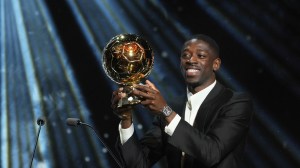…Where is the space, asks Jaitley
The BJP, in its latest face-off with Prime Minister Manmohan Singh, hit out where it might hurt most — the country’s economy. BJP ...

The BJP, in its latest face-off with Prime Minister Manmohan Singh, hit out where it might hurt most — the country’s economy. BJP general secretary and former Commerce minister Arun Jaitley today said the country’s economy is faced with stagnation though ‘‘we have an economist as the Prime Minister’’.
‘‘A non-performance on the economic front is the hallmark of this government. The upbeat mood in the Indian economy which the whole world had witnessed (during the NDA’s rule) has been disturbed,’’ Jaitley said. The effect of the new regime’s policies was manifested by the price-rise, he added.
Jaitley claimed that industrial unrest was ‘‘back in a big way’’ and differences between the UPA Government and Left parties was sending negative signals to the whole world. The BJP leader charged the Congress with arrogance of power and alleged it was denying space to the Opposition. Referring to Defence Minister Pranab Mukherjee’s statement, Jaitley said it shows the Government did not need an Opposition.
‘‘Parliament is not only for government business but also for Opposition to raise certain issues. There should be adequate space for opposition in Parliament. When that space is denied, it leads to a stalemate.’’ Disruption of Parliament by those on Treasury benches is unprecedented, he said. Whenever the BJP sought to raise the issue of tainted ministers, ruling coalition members tried to prevent it. He cited the arrest of Shibu Soren and said the Government did not allow a discussion on the issue.
The UPA ‘‘surprisingly’’ advocated a softer law to fight terrorism, but wanted to act tough to deal with somebody asserting her right to unfurl the national flag, he said.
On the issue of Savarkar’s plaque being removed from the Port Blair memorial, Jaitley said one may differ over ideologies of great leaders but there should be no disrespect. If this happened, the ideology and patriotism of one section of the Congress and its allies could also come under question, he said. In a veiled reference to the Communists, he said one could be tempted to go in to the role of ‘‘some people’’ during 1942 and 1962, when they were not prepared to call the Chinese ‘‘aggressors’’.
Photos


- 01
- 02
- 03
- 04
- 05





























